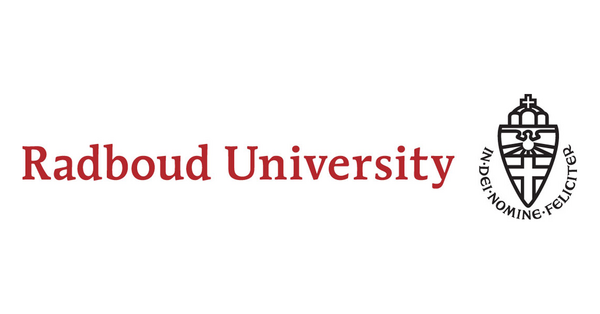Canada is currently offering a significant opportunity for immigrant nurses, with the potential to earn up to $100,000 annually, along with visa sponsorship and competitive hourly wages. This initiative is a response to the growing demand for skilled nursing professionals in the country, driven by an aging population and a commitment to high-quality healthcare services.
Rising Need for Expert Nurses in Canada
Canada’s dedication to providing top-tier healthcare has led to a significant increase in the demand for proficient nurses. With the aging of the population, there’s a growing need for skilled healthcare personnel, offering a thriving opportunity for immigrant nurses to develop fulfilling careers.
Navigating the Licensing Process
After meeting the educational and language proficiency requirements, the next steps involve navigating the licensing process specific to the province or territory where you wish to practice. This process typically includes:
Credential Assessment
Your nursing education and qualifications must be assessed to ensure they meet Canadian standards. This assessment is conducted by the nursing regulatory body in the province or territory where you plan to work.
National Nursing Assessment Service (NNAS)
For internationally educated nurses, the NNAS plays a pivotal role. It provides a streamlined process for credential verification and assessment, serving as a central point for collecting and storing your credentials.
National Council Licensure Examination (NCLEX-RN)
Most provinces and territories in Canada require nurses to pass the NCLEX-RN exam. This standardized test assesses your knowledge and skills to ensure you’re prepared for the responsibilities of a registered nurse in Canada.
Jurisdiction-Specific Requirements
Each regulatory body may have additional requirements, such as specific courses, clinical experience, or jurisprudence exams, which assess your knowledge of Canadian healthcare laws and professional practice standards.
Application for Licensure
Once you have fulfilled all the requirements, you can apply for licensure with the nursing regulatory body in your chosen province or territory. This process typically involves submitting your credentials, assessment results, and any additional documentation required.
Continuous Professional Development
After obtaining your license, maintaining it usually requires ongoing professional development. This ensures that nurses stay current with best practices and evolving healthcare standards.
In summary, becoming a licensed nurse in Canada involves a thorough process of meeting educational and language requirements, undergoing credential assessment, passing the NCLEX-RN, fulfilling any additional provincial or territorial requirements, and committing to continuous learning and development. This rigorous process ensures that nurses in Canada are well-equipped to provide high-quality care in a diverse and dynamic healthcare environment.
Popular Provinces for International Nurses in Canada
Canada’s vast landscape offers diverse opportunities for foreign nurses, with certain provinces standing out due to their job availability, welcoming communities, and streamlined licensing processes. Key provinces include:
- Ontario: As the most populous province, Ontario, particularly cities like Toronto, presents numerous nursing opportunities. The province’s healthcare system consistently seeks nurses for its diverse and dynamic settings.
- Alberta: Known for its robust oil and gas industries, Alberta faces a nursing shortage, particularly in cities like Calgary and Edmonton. This economic powerhouse province offers many job openings for nurses, making it an attractive option for career growth.
- British Columbia: Facing worker shortages, British Columbia actively recruits nurses internationally. The province, especially cities like Vancouver, is known for its natural beauty and high living standards, offering a range of nursing positions.
- Manitoba: Manitoba is appealing for its expedited licensing processes, immigrant-friendly programs, and numerous job vacancies. The province’s welcoming atmosphere and attractive immigration policies make it a top choice for foreign nurses.
Strategies for Securing a Nursing Job in Canada
For foreign nurses, securing a job in Canada involves several steps, including obtaining visa sponsorship. Here are strategies to enhance your job search:
- Online Job Boards: Platforms like Indeed, Monster, and LinkedIn are valuable for finding job openings. Provincial healthcare association websites also list opportunities in specific regions.
- Professional Networking: Establishing connections with recruiters and agencies specializing in healthcare placements is crucial. These professionals can provide guidance and support throughout your job search.
- Recruitment Agencies: Agencies offering comprehensive services, including visa and relocation assistance, can be instrumental. They often have direct links to healthcare facilities and can simplify the job search process.
- Specialization: Focus on areas where your expertise lies, such as ICU, oncology, or pediatrics. Specialized skills are often in high demand.
- Social Media and Professional Associations: Utilize social media and join nursing associations to network with healthcare professionals. These connections can lead to job referrals and insights into the Canadian healthcare job market.
- Virtual Career Fairs: Participate in online events that connect international talent with Canadian healthcare employers. These fairs are great opportunities to meet potential employers and learn about the healthcare system in Canada.
- Resume Tailoring: Ensure your resume showcases not only your nursing qualifications but also your adaptability and language skills. Highlighting these aspects can make you stand out as a well-rounded candidate in the Canadian healthcare sector.
Visa Options and Sponsorship for Foreign Nurses in Canada
Securing a job offer from a Canadian employer opens the door to visa sponsorship, with two primary options available for foreign nurses:
- Provincial Nominee Program (PNP)
- The PNP allows provinces and territories to nominate individuals for permanent residency based on local labor market needs.
- Nursing, being a high-demand profession, often qualifies for these nominations.
- Each Canadian region has its own criteria for nomination, tailored to address specific labor shortages.
- Employer-Specific Work Permits
- These permits are part of the Temporary Foreign Worker Program, allowing employers to hire foreign nationals for specific roles.
- While temporary, these permits can lead to permanent residency.
- Healthcare facilities frequently use this program to address nursing shortages.
- Collaboration with your employer is key to fulfilling the requirements for this type of permit.
Canadian employers experienced in sponsoring overseas nurses will typically guide you through the visa process. Being open to various locations within Canada can enhance your chances of obtaining sponsorship.
Diverse Nursing Opportunities in Canada
Canada offers a range of nursing roles suited to different healthcare needs:
- Registered Nurse (RN)
- Hospital Nursing: RNs in hospitals cover areas like medical-surgical, critical care, emergency, and more.
- Ambulatory Care: RNs provide preventive care and patient management in clinics and outpatient facilities.
- Long-Term Care: RNs in nursing homes and assisted living facilities focus on elderly and long-term care residents.
- Nurse Practitioner (NP)
- Primary Care: NPs offer comprehensive healthcare services in primary care settings.
- Specialty Clinics: NPs work in specialized areas like cardiology, dermatology, oncology, etc.
- Urgent Care: NPs in urgent care centers deal with acute medical conditions.
- Other Specializations
- Travel Nursing: Short-term assignments in various specialties and locations.
- Home Health Nursing: Community-based and hospice care in patients’ homes.
- Telehealth Nursing: Remote patient monitoring and virtual care.
- Public Health Nursing: Roles in public health departments and military nursing.
Nursing Management and Specialized Roles
- Management Positions: Such as Nurse Manager or Director of Nursing.
- Perioperative Nursing: Involving roles in operating rooms and ambulatory surgery centers.
- Psychiatric Nursing: Working in inpatient psychiatric units and community mental health settings.
Each of these roles offers unique challenges and rewards, contributing to a fulfilling nursing career in Canada.
Salary Overview for Nursing Roles in Canada
The remuneration for nursing roles in Canada varies depending on the position, level of experience, and location. Here’s a brief overview:
- Registered Nurse (RN):
- Entry-level RNs typically earn around $70,000 per year.
- Salaries can fluctuate based on factors like geographical location, years of experience, and the healthcare facility.
- Nurse Practitioner (NP):
- NPs, with their advanced education, have an average annual salary of approximately $110,000.
- This figure can vary with specialization, location, and type of healthcare setting.
- Specialized Nursing Roles:
- Specialties such as nurse anesthetists or nurse midwives often see average salaries around $180,000 annually.
- These higher salaries reflect the advanced skills and specialized training required for these roles.
Conclusion
Canada offers a unique combination of natural beauty, safe and welcoming communities, and a cutting-edge healthcare system, making it an ideal place for nurses to develop their careers. For foreign nurses looking to embark on a new journey, Canada presents a wealth of professional growth opportunities along with an excellent quality of life.
By following the guidelines and steps provided in this guide, you can navigate the path to a rewarding nursing career in Canada, a country that stands out as a top destination for healthcare professionals worldwide. Whether you’re seeking diverse clinical experiences, opportunities for specialization, or a supportive environment for professional development, Canada’s healthcare sector is ready to welcome you.




